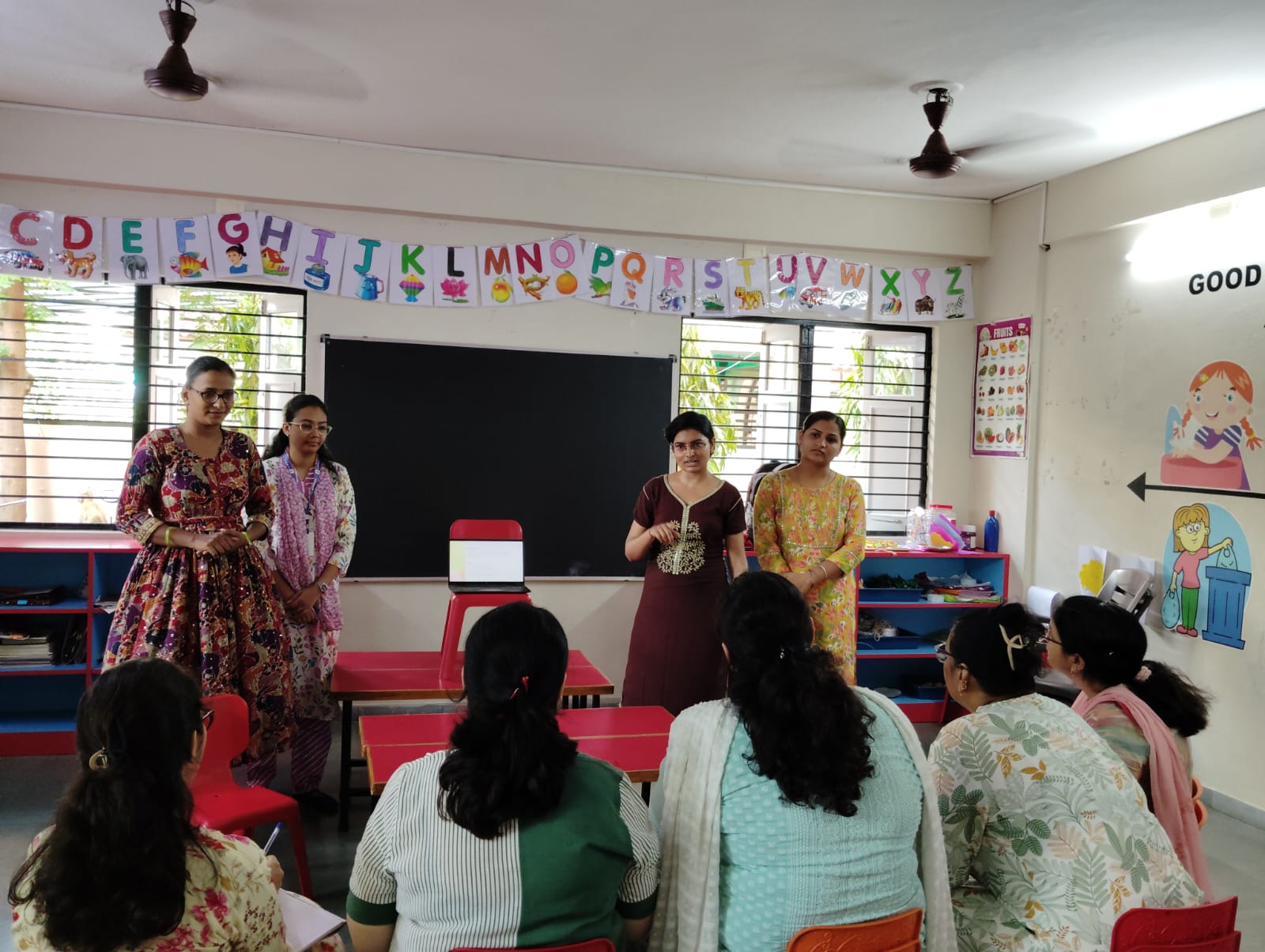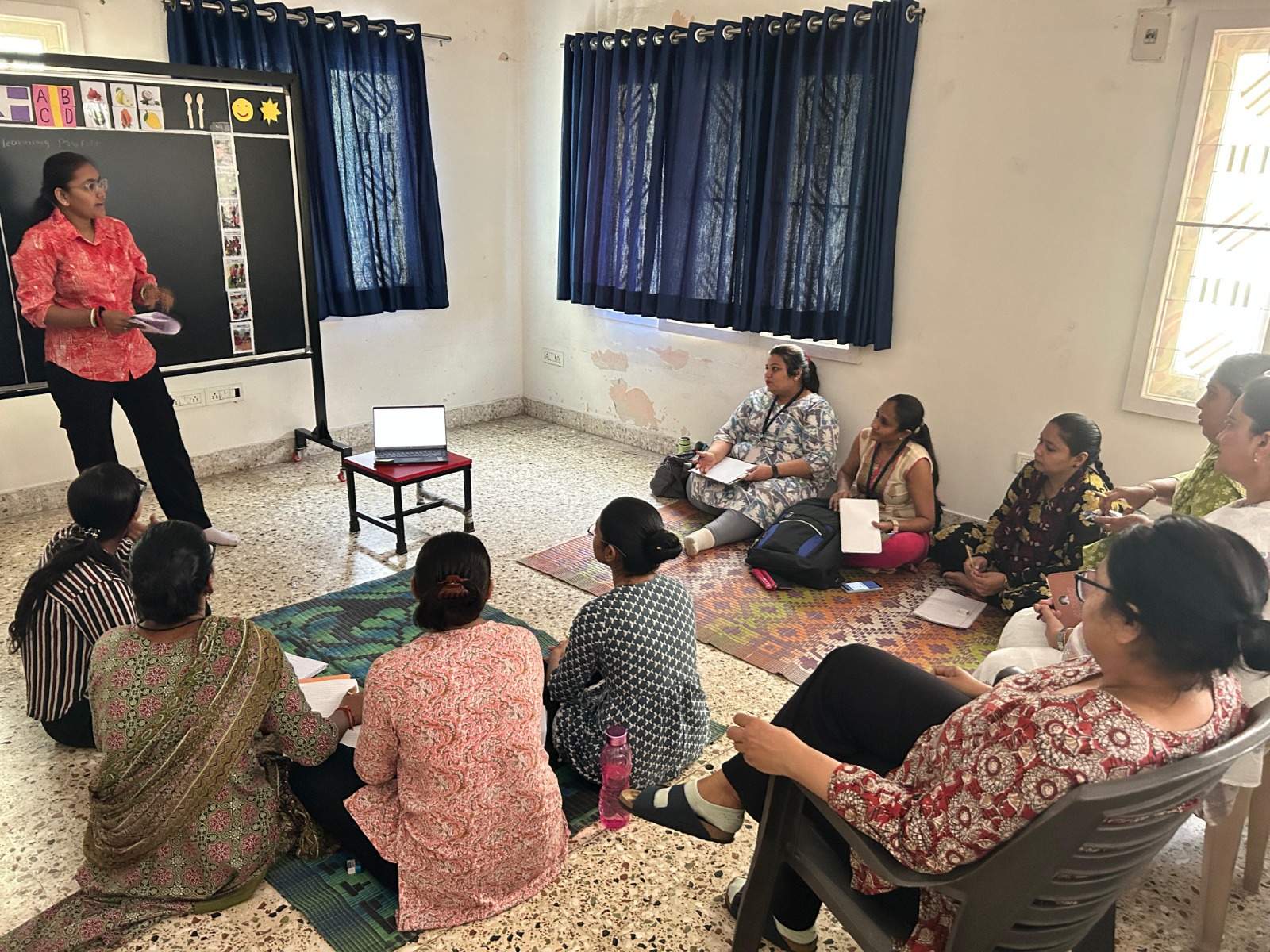School Mentoring program
Curriculum
We support schools in creating meaningful, inclusive curricula that reflect the diverse backgrounds of their students. Our approach ensures alignment with academic standards while promoting engagement, critical thinking, and cultural relevance in every classroom.
Teacher Training & Development
Our mentoring includes hands - on training for educators in pedagogy, classroom management, and digital tools. We focus on empowering teachers to create vibrant, student-centered learning environments through ongoing professional development.
School Auditing & Reflection
We conduct annual audits to assess curriculum effectiveness, teacher practices, and community engagement. These insights drive continuous improvement and help schools measure progress toward their learning goals.
Our Mentees
- Little Star School, Kankaria
Standalone Workshops
- Bright School, Maninagar
- EKA Club, Maninagar
- Bachpan School, Juhapura
- Classic Primary School, Juhapura
- Nurture Likha School LLP, Bopal


